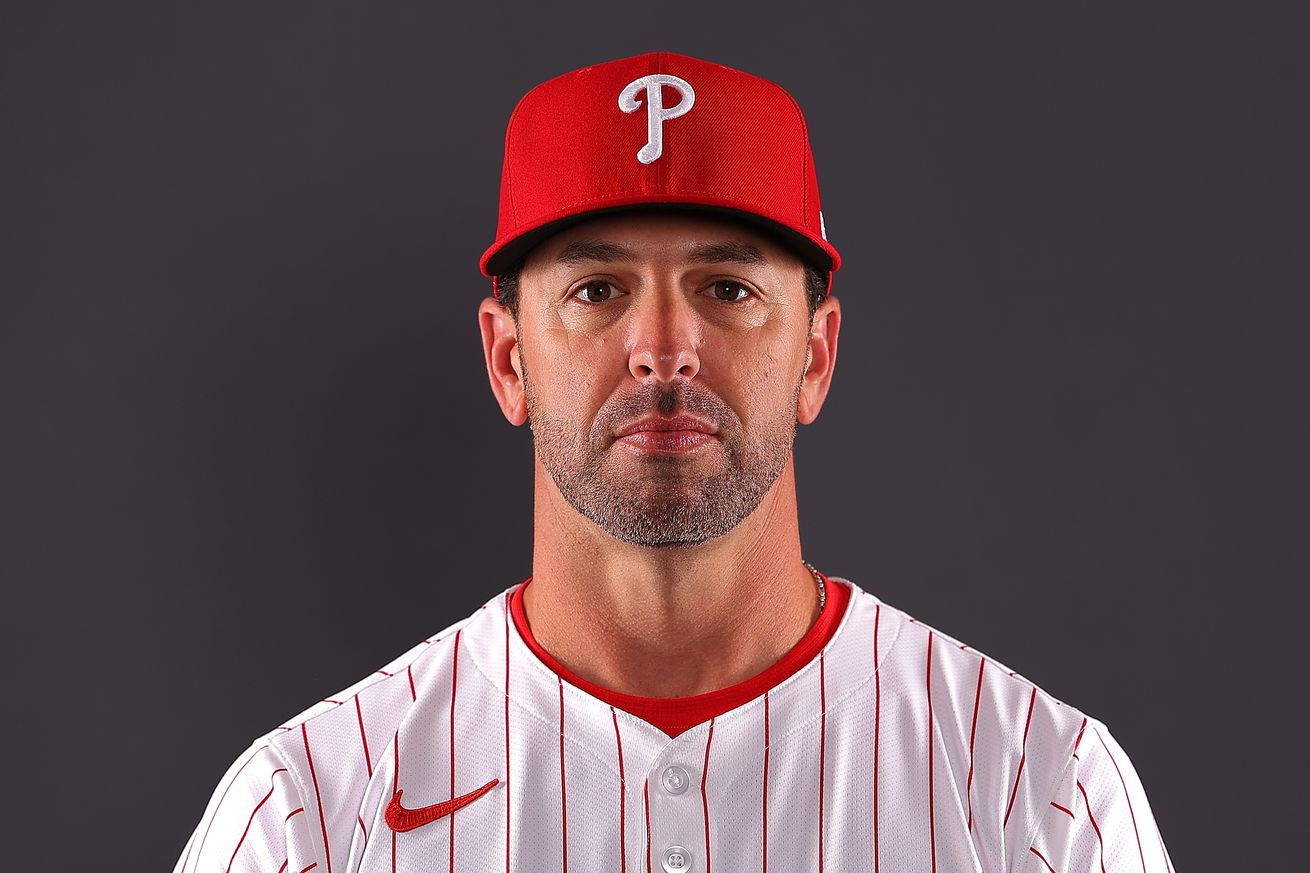
That didn’t take long.
The departure of Brent Strom, and just about every other pitching coach on the D-backs didn’t really come as a shock, considering how much both the starting pitching and relievers struggled last season. They finished 27th in ERA and 22nd in fWAR: it’s no exaggeration to say that, if the D-backs had merely been average on the mound, the team would have made the post-season in 2024. Where exactly responsibility for that shortfall lies is a legitimate topic for discussion, but the team decided that a change in coaching direction was a good start to addressing the situation. On October 3rd, Strom, as well as assistant pitching coach Dan Carlson, and bullpen coach Mike Fetters, were fired.
It’s perhaps a bit of a surprise that less than two weeks after the World Series ended, the team has already landed a replacement in Brian Kaplan, who for the past three seasons has been the Phillies’ Assistant Pitching Coach and Director of Pitching. There’s no question that over that time, the Philadelphia staff has been among the best in baseball. They’re third in FIP (3.82) and actually top in fWAR (69.0), though rank surprisingly low in ERA, where they are down in 12th at 3.95. That’s still more than half a run better than the Diamondbacks have managed over the same period (4.46), though the Phillies do play in a slightly more pitcher-friendly ballpark.
Last season though, the Philadelphia staff was well-ranked almost across the board. Most obviously, they were third in the league for ERA and second in fWAR. But their peripherals were also sound with the lowest walk percentage (7.3%) and fourth-highest strikeout percentage (23.7%), for a K:BB ratio of 3.23. Know when the last season was that the D-backs had a ratio that high? That would be “never”. They’ve only once reached three, and that was all the way back in 2002, at 3.10. So, if you’re going to get staff from anywhere, it appears the Philadelphia Phillies are a good place to get them. Although the same question arises as with Strom: how much impact does any pitching coach have?
That applies both there and here. To what extent was Kaplan responsible for the solid performance of Philadelphia’s pitchers? The D-backs’ press release says “he oversaw pitching development with the Major League club as well as throughout the organization, integrating multiple groups within player development (strength and conditioning, athletic training, etc.) to create individualized plans for success.” To be honest, that sounds more like they copy-pasted it from the resume on Kaplan’s job application. The Good Phight hasn’t posted about it, and the reaction on /r/baseball among Phillies’ fans to the news has been… Well, “muted” is putting it politely.
It’s always going to be a problem with coaches. When your team gets a player, there’s a proven track record of numbers, for which the player is responsible, and which can be used to estimate his performance. That’s much less the case for coaches, because of all the other factors that confound the situation. For instance, I could probably have “coached” the 2002 Diamondbacks pretty well, simply by letting Curt Schilling and Randy Johnson combine for 47 wins. They’re the only team-mates in more than half a century – since Mike Cuellar + Dave McNally on the 1970 Orioles, to be precise – to win 23+ games each. You didn’t coach the Big Unit in particular: you got out of his way, and left him to it.
So, we’ll see. The proof will be in things like fixing Jordan Montgomery. If Kaplan can figure out why he had such a terrible season compared to previous performance, and correct it, then I’ll likely be happy, even if everyone else on the staff is more or less at their 2024 level.
